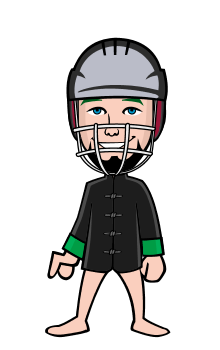How the Experts Spot Liars (and How You Can, Too)
I never knew I could spot lies better than average. I just knew I could read people well—really well. I thought perhaps I was gifted in understanding human behavior and human psychology, but I reasoned that many people are gifted. I didn’t know at that time how rare my ability was.
In 2006, however, I took part in a research study called the “Wizards Project” (“wizard” as in sage or expert—not the mystical stuff). Two researchers, Maureen O’Sullivan and Paul Ekman, were looking for people who truly understood other people. They reasoned that if a person could spot lies in another, then he likely understood other people.
Over two decades, the two scientists tested more than 15,000 people (mostly individuals in law enforcement) and identified only 50 who could spot deception with high accuracy.
I’m one of them.
Less than one-third of 1 percent of the people tested passed the deception tests created by O’Sullivan and Ekman. And out of those 50 people, only four were not in law enforcement.
I am one of those four.
It wasn’t until I started writing publicly about what I see that I attracted attention and started to see how different I was. I shared thoughts I always kept private—people don’t like you to analyze them. I wrote about active cases in the media—dissecting people who spoke out publicly. Within a short period of time, I had a monthly audience that averaged 40-60K readers a month on my blog (link is external).
Law enforcement found my public analysis of active cases and started asking if I would consult with them because they saw I could offer unique insights into their cases. After that, it wasn’t long before they inquired if I could provide training.
We think we are in control of our body language, spoken words, and emotions, but the reality is we are not: Our mind and body literally betray us when we lie!
When it comes to deception, I don’t look for gaze aversion, nervousness, body blocking behaviors, etc.—these are not reliable indicators of deception. The reason is quite simple: Honest people do them, too. If both liars and honest people do them, how do we know if someone is honest or lying? We don’t. Further, people can often control these behaviors.
So what do I look for when identifying a liar?
I look out and watch for subconscious leaks—leaks that liars cannot control. Liars leak clues in physical form through their body language, in their words or lack thereof, through their emotional displays, and in their thinking (cognitive clues). When a person lies, they have to balance the truth, which they internally know as fact, against the lie they want you to believe. It is during this manipulation that liars leak clues on a subconscious level, often many of them. Most people, however, don't know what to look for.
Here is an example I ran across while reading about an auto recall the other day: An automaker is recalling vehicles in northern states due to rust from salt use on the roads. In the article, they listed the states in the recall: Connecticut, Delaware, Illinois, Indiana, Iowa, Maine, Maryland, Massachusetts, Michigan, Minnesota, Missouri, New Hampshire, New Jersey, New York, Ohio, Pennsylvania, Rhode Island, Vermont, West Virginia, Wisconsin, and Washington, DC.
They listed states with snowy, salted roads. Sounds reasonable, right?
Actually, it doesn’t. There is something strange here. Did you catch it?
Are they really recalling the cars in all Northern snow/salt affected states? Where are Colorado, Utah, North Dakota, Oregon, and the others? I checked which states use salt on their roads, and there are more that use salt and salt brines that this recall doesn't include. Why is that?
This is just one example of an inconsistency in words that pop out at me and get my attention. We would need to do more reading to see if this is, in fact, an intentional omission. At this point, it’s just an inconsistency.
Liars leak many clues, but the most reliable are probably not the ones you think. Ask yourself: Do you consider each word that is spoken, written, or omitted as significant? You should. Liars typically manipulate information to fool you, but in doing so they experience cognitive overload. They are focused on the elements they find important, trying to hide what they don’t want you to find important. They often miss other elements in the process inadvertently, which can be very relevant, if you're paying attention.
Contemporary research by Vrij and colleagues indicates that placing a cognitive load on liars by asking them unexpected questions or by distracting them makes it harder for them to maintain and elaborate on their stories well. Because the people I watch—all of us, really—are under cognitive load, we can watch for the natural slip-ups that may reveal deception.




